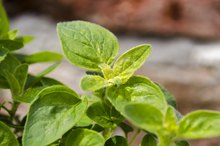What does fact checked mean?
At Healthfully, we strive to deliver objective content that is accurate and up-to-date. Our team periodically reviews articles in order to ensure content quality. The sources cited below consist of evidence from peer-reviewed journals, prominent medical organizations, academic associations, and government data.
- Cardiovascular Journal of South Africa: Hypoglycaemic and Hypotensive Effects of Momordica Charantia Linn (Cucurbitaceae) Whole-Plant aqueous Extract in Rats
- Cardiovascular Journal of South Africa: Hypoglycaemic and Hypotensive Effects of Momordica Charantia Linn (Cucurbitaceae) Whole-Plant aqueous Extract in Rats
- Phytotherapy Research: Antioxidant Activity of Five Vegetables Traditionally Consumed by South-Asian Migrants in Bradford, Yorkshire, UK
- Phytotherapy Research: Antioxidant Activity of Five Vegetables Traditionally Consumed by South-Asian Migrants in Bradford, Yorkshire, UK
- BMC Complementary and Alternative Medicine: Momordica Charantia (Bitter Melon) Inhibits Primary Human Adipocyte Differentiation by Modulating Adipogenic Genes
The information contained on this site is for informational purposes only, and should not be used as a substitute for the advice of a professional health care provider. Please check with the appropriate physician regarding health questions and concerns. Although we strive to deliver accurate and up-to-date information, no guarantee to that effect is made.
What Are the Health Benefits of Gohyah Tea?
Gohyah, sometimes spelled "goya" and also called bitter melon, has health-boosting properties that could help prevent chronic diseases. It is eaten as a food in Asia, and gohyah tea has been used traditionally as a natural medicine for diabetes, cancer and infections. Drinking gohyah tea could be helpful for people at risk of obesity and related diseases. Gohyah tea may be unsafe if you are hypoglycemic or taking medications, so consult with your doctor before regularly brewing this tea.
If you are experiencing serious medical symptoms, seek emergency treatment immediately.
Helps Prevent Obesity and Related Diseases
According to a study published in 2010 in "BMC Complementary and Alternative Medicine," gohyah breaks down fatty acids and triglycerides so that your body metabolizes them instead of storing them as fat cells. The study concluded that gohyah may potentially help in weight-loss efforts. A study published in the "Cardiovascular Journal of South Africa" in 2006 found that gohyah lowers glucose levels and blood pressure in type-2 diabetes patients 1. Regular gohyah tea consumption could possibly prevent type-2 diabetes and high blood pressure.
- According to a study published in 2010 in "BMC Complementary and Alternative Medicine," gohyah breaks down fatty acids and triglycerides so that your body metabolizes them instead of storing them as fat cells.
- A study published in the "Cardiovascular Journal of South Africa" in 2006 found that gohyah lowers glucose levels and blood pressure in type-2 diabetes patients 1.
Antioxidant Content and Cancer Prevention
The Health Benefits of Pine Needle Tea
Learn More
Gohyah tea is rich in antioxidants that can protect you from the oxidation stress that causes aging. A study published in 2005 in "Phytotherapy Research" found that boiled gohyah has more antioxidant properties than raw gohyah, so consuming gohyah as tea is more beneficial 2. The American Association for Cancer Research reports gohyah extract can inhibit the growth of breast cancer cells and even kill them. The scientists concluded gohyah has breast cancer preventative effects but were unsure about its effectiveness in treating cancer.
- Gohyah tea is rich in antioxidants that can protect you from the oxidation stress that causes aging.
- A study published in 2005 in "Phytotherapy Research" found that boiled gohyah has more antioxidant properties than raw gohyah, so consuming gohyah as tea is more beneficial 2.
Related Articles
References
- Cardiovascular Journal of South Africa: Hypoglycaemic and Hypotensive Effects of Momordica Charantia Linn (Cucurbitaceae) Whole-Plant aqueous Extract in Rats
- Phytotherapy Research: Antioxidant Activity of Five Vegetables Traditionally Consumed by South-Asian Migrants in Bradford, Yorkshire, UK
- BMC Complementary and Alternative Medicine: Momordica Charantia (Bitter Melon) Inhibits Primary Human Adipocyte Differentiation by Modulating Adipogenic Genes
- New York University Langone Medical Center: Bitter Melon
Writer Bio
Karen McCarthy is a health enthusiast with expertise in nutrition, yoga and meditation. She currently studies at the Institute for Integrative Nutrition and has been writing about nutrition since 2012. She is most passionate about veganism and vegetarianism and loves to promote the health benefits of eating fruits and vegetables.









